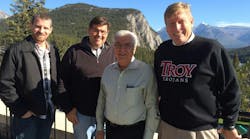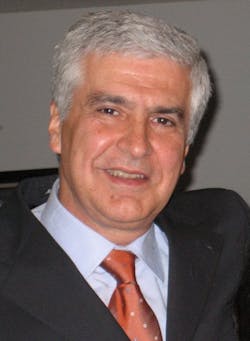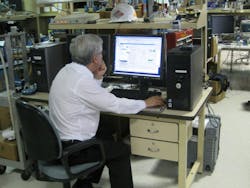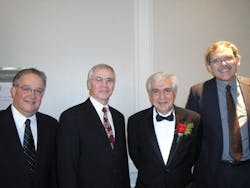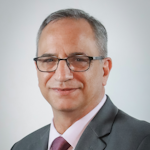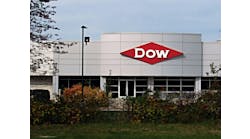Editor’s note: Please join us in congratulating the newest inductees to the 2024 Process Automation Hall of Fame. Joe Weiss is managing partner of Applied Control Solutions Inc., and an ISA99 ICS cybersecurity pioneer and blogger. Mark Darby works extensively with gas refineries and chemical processing plants. He also serves on the advisory board at Texas Tech University. Marcos Peluso served as director of development for fieldbus at Emerson.
Over the past several weeks, they talked to Control about their careers, accomplishments and thoughts on the future of process control and automation. In this series, we tell their individual stories about their past careers and catch up on their present work. We hope you enjoy getting to know these fabulous engineers and learning about their career journeys.
When Marcos Peluso came to the U.S. from Brazil—for a second time—at the invitation of Rosemount, his work had long-lasting and game-changing effects on instrumentation and control. In the 1990s, Peluso, an electronics engineer from of Sao Paulo, Brazil, settled down in Chanhassen, Minn., having already honed his expertise working with everything from atomic energy to developing smart transmitters. However, it’s his work on developing Foundation Fieldbus that caps a brilliant career.
In fact, Peluso served as director of development for fieldbus during his time at Smar, a Brazilian company that develops, manufactures, and sells instruments, controllers, hardware and software for measuring, controlling, operating and managing maintenance assets. He also worked at Emerson’s Rosemount division, pioneering the interoperable, industrial network for real-time, distributed control. “It was an interesting experience,” Peluso says rather simply and humbly.
Of course, developing Foundation Fieldbus was no small feat, and it helped advance interoperable control systems in multiple industries and sectors around the globe. Today, its development fuels new concepts for interoperability as technology advances through digital transformation. These days, devices are managed via the Internet and up-and-coming technologies such as Ethernet-Advanced Physical Layer (APL), but the foundation of these approaches remain the same as when Peluso and his team began cultivating the then-growing trend of interoperable and standardized networking.
“It’s to have better accessibility to field device data, as well as better and more reliable connections,” he says of Foundation Fieldbus.
Initially, the group Peluso oversaw worked on controlling their company’s field instruments, but the scope grew wider, and other companies’ technologies began to take part in their processes. “We started the interoperability lab, where we would invite other companies to test their systems,” Peluso explains. “It was a really nice experience. We formed a really great team.”
Not one to boast of his accomplishments, Peluso understands the significance Foundation Fieldbus had on the process industries. “The control quality is much better than using the conventional methods that came prior because you have synchronization between the measurement and the actuation without having to go through all the delays you had in between,” he says. “This was proven not only in the field, but also in tests—that you can have much less variability when you do control.”
Peluso’s impact on the industry didn’t stop with fieldbus. Later, he became one of the directors of PlantWeb development for Emerson, a portfolio of industry-based solutions designed to drive performance improvement in the areas of production, reliability, safety and sustainability, particularly for companies embarking on digital transformation.
But getting to the point of leading the development of two significant technologies was a long road that took Peluso to many parts of the world with several twists and turns on his journey. Admittedly, he didn’t initially intend to work in control and instrumentation. When he graduated college in Brazil, he thought he’d become a researcher, or as he puts it, “more like a scientist.”
But fate, and job opportunities, played a hand in his career direction. Initially, he thought he’d work for a Brazilian airplane manufacturer, but instead ended up working for Brazil’s atomic energy institute. “Most of the people there were physicists,” he says of the institute. “The guy who interviewed me labeled me control and instrumentation because I was an electronics engineer, so I started working in control and instrumentation, and doing some research on nuclear reactors we had.”
He also spent two years in Germany, working for the nuclear power branch of Siemens. “It was a great experience because the control and instrumentation implementation was quite different than the one used in the U.S.,” he says.
After his wife became pregnant with their first child, they decided to move back to Brazil. “We wanted our child to be born close to grandparents and family,” he says.
In Brazil, he went to work with Smar, initially a provider of field services for in-steam turbines for Brazil’s sugar industry, but quickly grew to provide process control for industrial plants.
Peluso eventually made his way back the U.S. thanks to Rosemount’s invitation. Soon he was on his way to making a name for himself on the Foundation Fieldbus team in the U.S.
He spent much of his later years with Emerson with the title “distinguished technologist.” “They let me work more like an inventor and problem solver,” he explains.
Mainly, he solved problems, whether at plants or by developing instruments. “I’d go there to help troubleshoot. I still worked on the standards, further developing them,” he continues.
